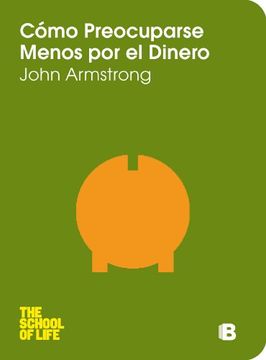CÓMO PREOCUPARSE MENOS POR EL DINERO
JOHN ARMSTRONG
Filósofo residente en la escuela de negocios de Melbourne y asesor jefe del rector de la Universidad de Melbourne. Nacido en Glasgow y educado en Oxford y Londres, vive en Australia desde 2001. Es autor de varios libros internacionalmente aclamados sobre arte, estética y filosofía.
- En pedagogía se establece una gran distinción entre el entrenamiento y la educación. Mediante el entrenamiento se proporcionan estrategias y habilidades que permiten realizar una tarea específica de una manera eficiente y con confianza. La educación, por su parte, abre y enriquece la mente. Si el objetivo es entrenar a alguien, no es preciso saber nada acerca de quién es realmente, o qué le gusta, o por qué. La educación, en cambio, abarca todas las facetas de la persona.
- El conocimiento de uno mismo, la experiencia y el valor (los auténticos antídotos contra el miedo) no hacen que desaparezca el peligro, pero nos capacitan para vivir una vida más próspera pese a la existencia del peligro.
- Con excesiva frecuencia utilizamos nuestra propia vida como un modelo para la de los demás. “Escuchar” significa descubrir lo que a otra persona le está ocurriendo realmente

Comentarios
Publicar un comentario